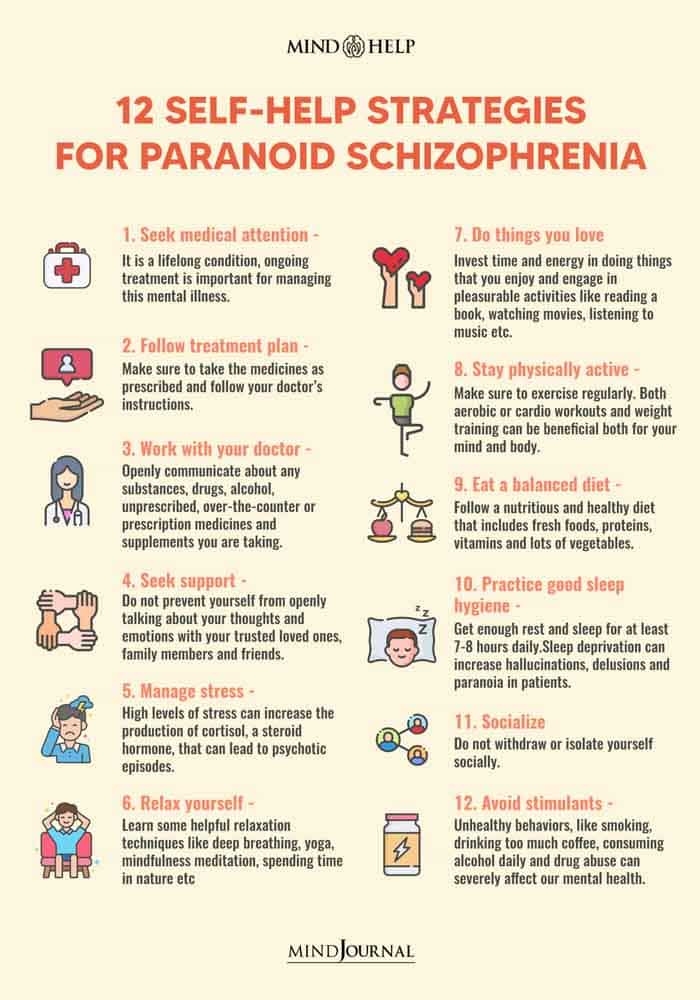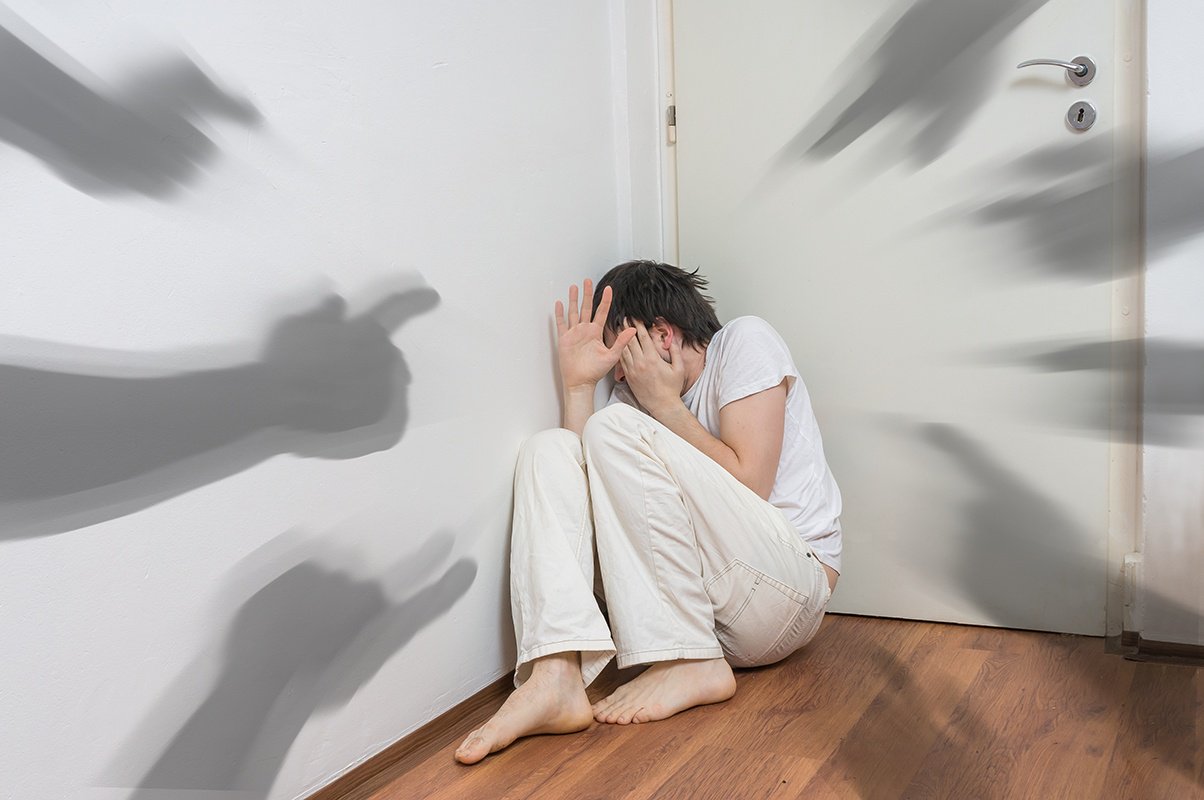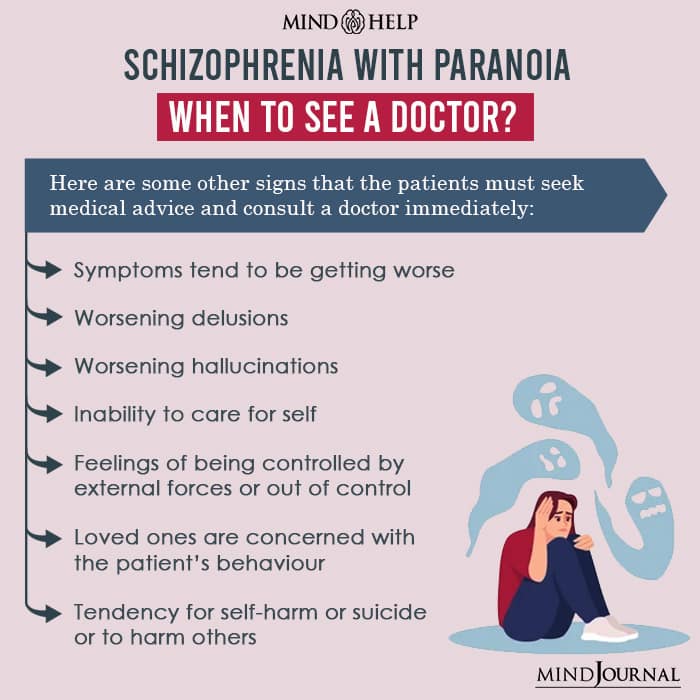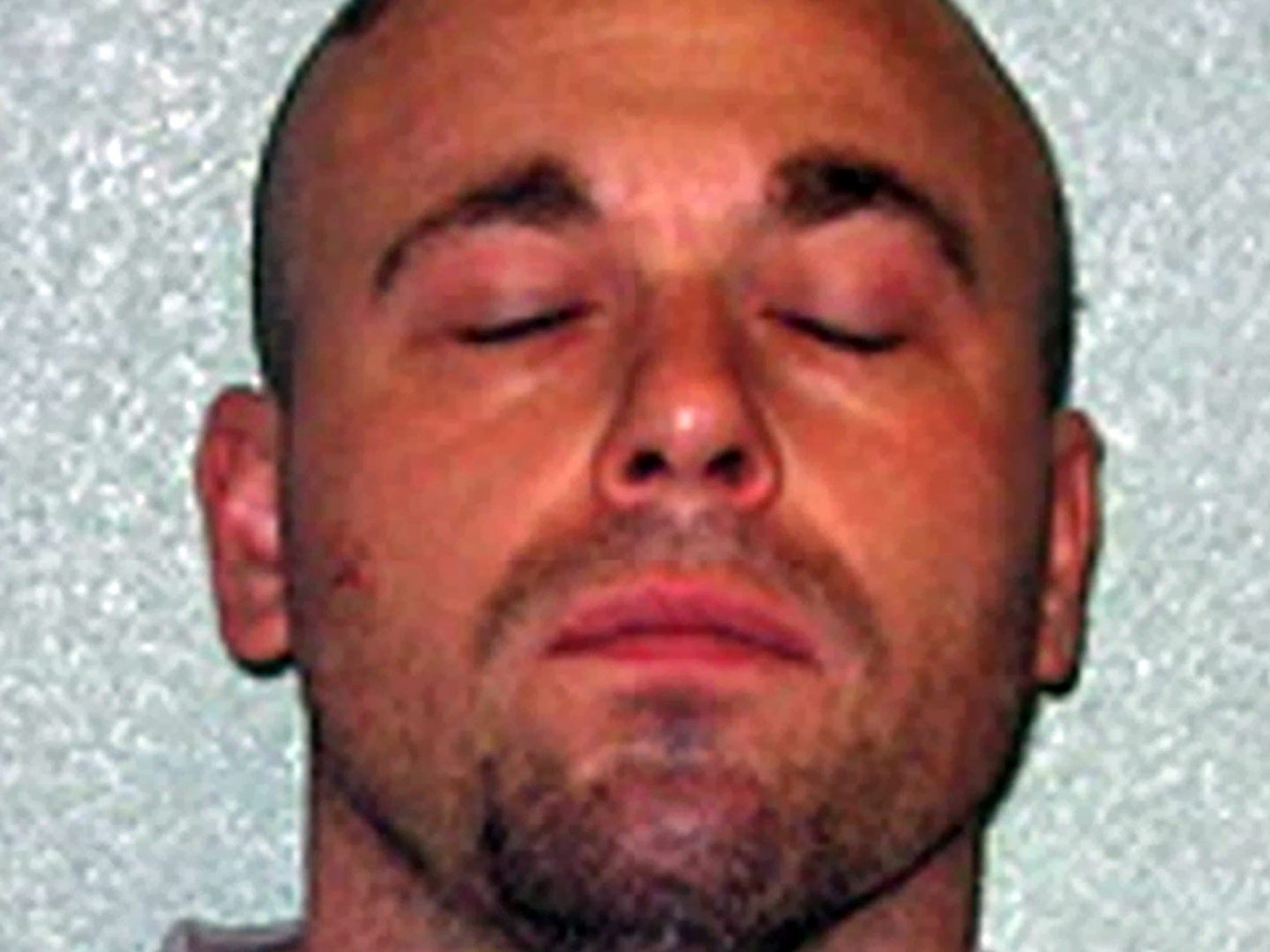Beautiful Work Info About How To Deal With Paranoid Schizophrenic

The term “paranoid schizophrenia” is an outdated name for a subtype of schizophrenia.
How to deal with paranoid schizophrenic. Do not assume that they are not smart and will believe anything you tell them. When your loved one is receiving treatment, offer support while not trying to “fix” everything. People with psychotic symptoms may lose a shared sense of reality with others and experience the world in.
Experts no longer use or recognize this term. In many ways, this is consistent with the present findings. Method 1 expressing empathy 1 maintain regular contact.
Mental illness is highly stigmatized, and this is particularly true of schizophrenia. Delusions refer to a fixed false belief. The person may believe they are being followed and watched when that is not the case, says d’souza.
Offer encouragement help with goals things to avoid when to intervene takeaway schizophrenia can be managed with treatment and support. Tips for loved ones next steps developing tools to cope with schizophrenia can make it much less challenging for those with the condition and their loved ones. According to some studies, almost 50% of individuals seeking help for a psychotic disorder experience paranoia.
Thoughts that others may want to do you harm or are trying to control you; Helping someone with schizophrenia tip 1: People with schizophrenia may experience paranoia, a type of delusion that usually involves persecution.
Helping patients with paranoid and suspicious thoughts: Delusions make someone with it unreasonably suspicious of other people. Instead, experts recognize schizophrenia as a specific disease, which is part of a spectrum of related conditions that involve psychosis.
Some people with paranoia may be frightened, so be aware that they may need more body space than you. No matter how much information is presented to you showing that the belief is false or misperceived, you continue to hold on to the belief. Here, learn about support, treatment, and more.
For example, due to sensationalist media stories, people with schizophrenia are often portrayed as being violent, when. In some cases, hospitalization may be needed.
Paranoia is an irrational feeling of suspicion and mistrust. How to help someone living with paranoia signs ways to support what you can and can't do recap it can be difficult to watch a loved one experience symptoms of paranoia. A psychiatrist experienced in treating schizophrenia usually guides treatment.
Explore housing options tip 7: Do not lie to them, as it will usually break any rapport you might want to establish. Prepare for crisis situations tip 6:

:max_bytes(150000):strip_icc()/what-is-paranoid-schizophrenia-4155331_final-fa6c66e4d61144079a2fa4897743ea39.png)
:max_bytes(150000):strip_icc()/schizophrenia-treatments-2330662-86632e6754d0472bb5c2891d6eb94bcd.png)


:max_bytes(150000):strip_icc()/positive-symptoms-in-schizophrenia-2953124-5d9769edb6ae4fa38284442f850315e1.png)






:max_bytes(150000):strip_icc()/schizophrenia-what-you-need-to-know-4156588_v2-1ece0061ce034993b95efb6ad3e95cbf.png)




